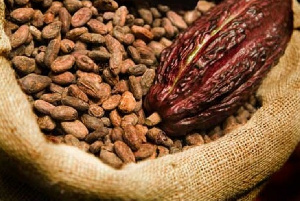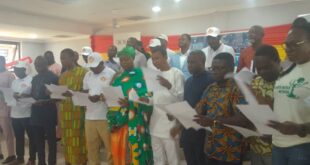Ivory Coast and Ghana have agreed initial deals to sell cocoa with a living income premium of $400 a tonne added to the price, in a bid to reform the way global cocoa is priced, industry sources and a government source told Reuters.
In a move aimed at easing pervasive farmer poverty, the West African neighbours, who together produce more than 60% of the world’s cocoa, introduced a living income differential (LID) in July on all cocoa sales for the 2020/21 season.
French chocolatier Cemoi confirmed it had bought cocoa from Ivory Coast and paid the $400 a tonne LID, while trade sources said Sucden, Barry Callebaut, Cargill and Olam had done similar deals.
“I cannot say who has bought but there is interest in the 2020/21 contracts and there are sales,” said a source at the Ivory Coast Coffee and Cocoa Council (CCC), an industry regulator.
Barry Callebaut, Olam and Cargill were not immediately available to comment. Sucden said it couldn’t comment on commercially sensitive matters.
Cocoa prices on ICE Futures Europe hit a one-year high of 1,939 pounds ($2,424) in July, in anticipation of the pricing move by the West African producers.
Chocolate makers and grinders have publicly expressed support for the LID, though traders have privately said the plan could lead to surplus production and might eventually prompt them to seek other sources of supply.
One industry source said while the 2020/21 trades mark a first step on the road for Ivory Coast and Ghana, “success will come when they’ve sold all their beans (using the regular pricing formula) plus the LID”.
He added: “There’s still a risk if the world has a surplus and they (are) the most expensive (sellers), they’ll be left carrying unsold beans. They’ll have to pay for those beans, pay to store them etc.”
Ivory Coast and Ghana have so far sold around 20,000 to 25,000 tonnes with the premium attached, sources said. The bulk of an expected 2020/21 harvest of 2.5 million tonnes is yet to be sold, although it is still early in the marketing campaign.
The two countries plan to use funds raised from the LID to guarantee farmers get 70% of a $2,600 a tonne (FOB) target price. If global prices rise above $2,900, proceeds from the LID will be placed in a stabilisation fund that would be used to ensure farmers get the target price when market prices fall.
The LID is not the first attempt to combat farmer poverty.
Third-party certification schemes, corporate sustainability programmes, and government-guaranteed minimum prices have aimed to tackle farmer poverty and deforestation, a related scourge which also threatens the sector’s future in West Africa.
Source: classfmonline.com
 Home Of Ghana News Ghana News, Entertainment And More
Home Of Ghana News Ghana News, Entertainment And More





